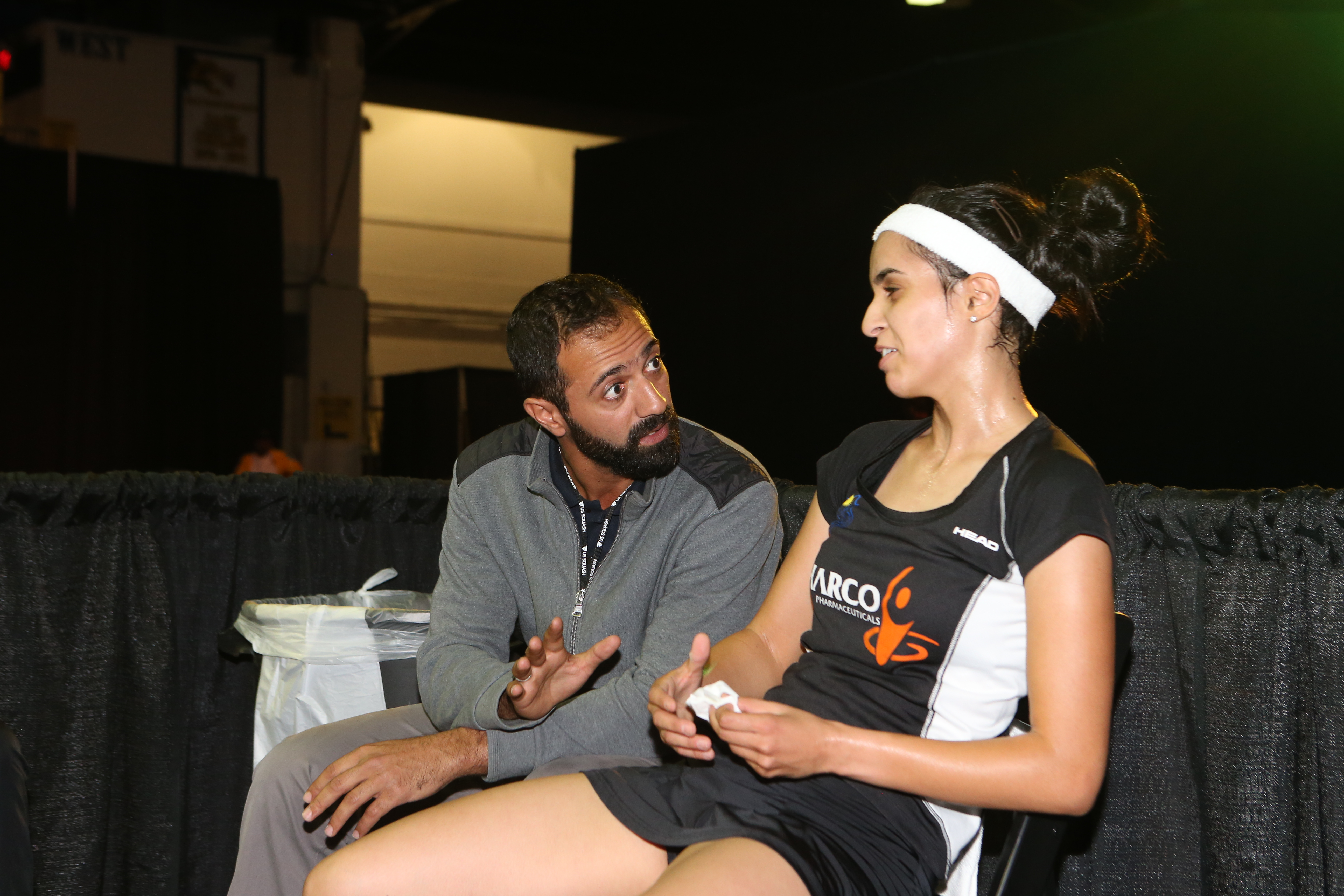
by Richard Millman
Whether you are a parent, a coach or a player, chances are you are focused on improvement. If this is the case, I have some simple advice for you. But beware—simple never means easy.
If you play competitive squash, you probably have been asked: “How did you play?” If you want to assist in the improvement process of your child or pupil, this is a decent question—because it didn’t inquire about the outcome. If you are asking someone else this question, make sure that the answer describes the performance and not the outcome. Results are a consequence of performances.
Performances are not improved by focusing on outcomes. Ever. Never ask your child or student if they won. And never answer the question: “How did you play?” by beginning with the result. The way to answer is to describe precisely what you did well and what you would like to do better. If you want to mention the outcome as an aside after this discussion, that’s perfectly fine. But don’t talk about it until after you have described the performance. You might think this is touchy-feely nonsense, but I assure you that it is not. It is a hard, practical, methodical, simple approach to getting better.
Every day parents, friends and would be do-gooders do huge damage by focusing competitors on outcome instead of performance. In doing so, they set back so much of the hard work and preparation put in by competitors and coaches. Life is a race, and like any race your whole focus should be on moving forwards with care and attention to details.
If you ask the question: “What did you do wrong?” you focus on failures of the past and in doing so direct your attention toward going backwards—not a recommended direction for progressing toward the future. All this does is establish the idea that the player is the villain in their own story and identifies their barriers toward progress. On the other hand, the question: “What did you do well and what would you like to do better?” helps the player to establish themselves as the potential hero in their own story and shows them a path to a brighter and more successful future.
Likewise, if you are goal setting, don’t specify outcomes such as a result against a particular player, team or a ranking number. All this does is put a huge emotional and mental burden on you or the players you have given this goal too.
Rather than that, target a particular tournament or ranking period for performance and enthusiastically work to see how well you can perform. The opportunity to surprise oneself by focusing on performance rather than outcomes is part of the great delight of true improvement. After the target performance has passed, review your performance and reset for the next target. Only compare yourself to your most recent performances and either celebrate progress or analyze what is needed to move forwards.
This simple system is fail safe. But remember, simple isn’t easy.
Working hard on your technique, strategy, mentality, team spirit and fitness while genuinely remaining excited to discover just what you are capable of – this is truly the path to future success as long as you define success as progress and not some specific outcome.
Outcomes are a consequence of performance. They are like milestones or even small scenic villages on the journey. Be careful not to get waylaid at one of these milestones or villages (or disappointed that you haven’t reached one of them), and find that you have forgotten the journey forwards. Work on your performance in a positive manner and you will surprise yourself and all of those around you.
Many of you have learned the importance of racquet preparation, dynamic movement, setting up at ninety degrees to the line you want your shot to travel on, pace management to put you in position before your opponent can hit the next shot, using specific hitting zones on the racquet for touch, control and power, etc.
These are the fundamentals of squash. The basic rudiments of the game. The simple stuff that we all have to learn. But if I ask you how well you perform these simple fundamentals, how would you answer? Are you among the top 50% of exponents of these simple fundamentals in world squash? The top 20%? The top 5%?
Again, simple is hard—it takes tremendous focus to do basic things well. Extraordinary players do ordinary things extraordinarily well. So the next time you hear the question: “How did you play?”, focus on what you did well and ask yourself what could you do better. Focus on performance—not outcomes.





